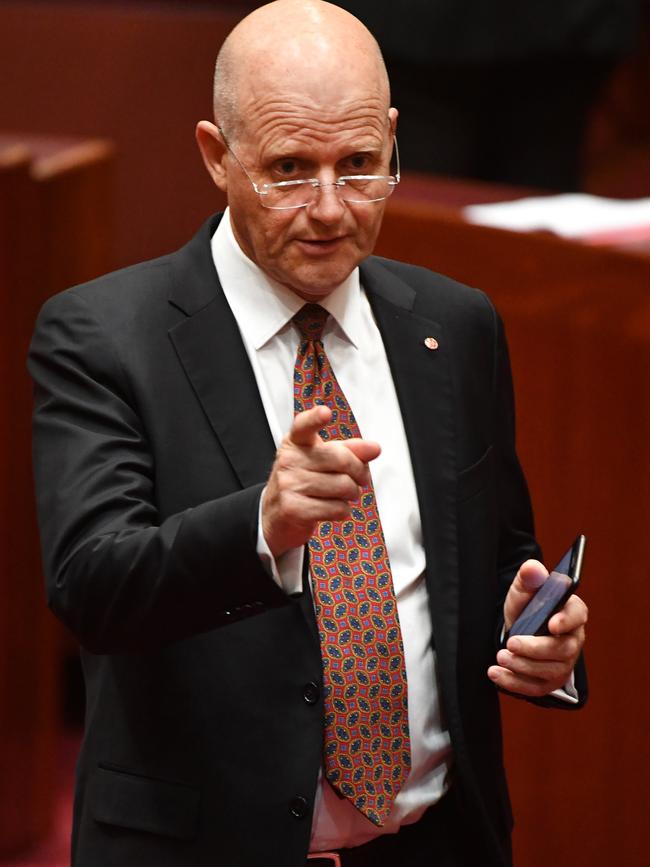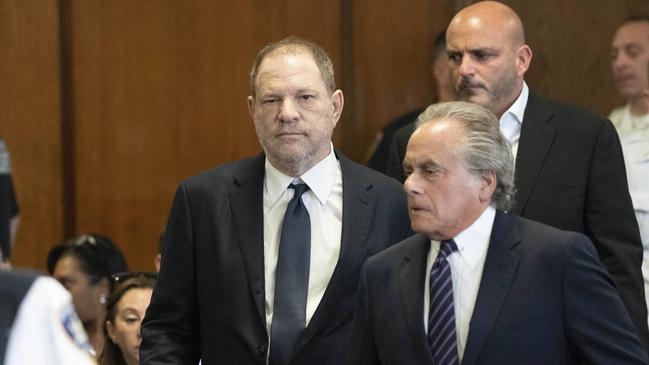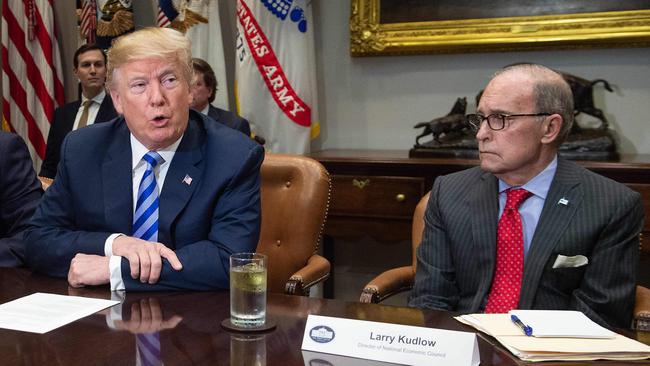Taking offence is the new black and public apologies are the remedy of the day
TAKING offence is the new black — everybody’s doing it. And, while the public apology is a popular remedy, it’s getting a bit ridiculous, writes Liberal Democrat Senator David Leyonhjelm who suggests it would be easier to ban taking offence.
Opinion
Don't miss out on the headlines from Opinion. Followed categories will be added to My News.
AS a white, middle-aged, straight, cisgender male, some people claim I am a guilty of white privilege, age-privilege, gender privilege and male privilege.
Others suggest I have unconscious bias in favour of my race, age, gender or sexual preference (or all four).
These all sound pretty serious and I had to do some research to determine what they mean.
It turns out they are all in the eye of the beholder, and arise due to an inability on the part of the accuser to distinguish between individuals and their social groupings.

This disturbs me because, as an individual, I regard myself as unique. The people who make these claims do not know me personally, but make assumptions based on distant observations.
That’s pretty offensive, as it assumes my colour, age, gender or sexual preference define me.
In addition, categorising individuals based on collective attributes has a pretty dodgy history.
It underpinned the philosophy of the mass murdering regimes of the 20th century, including Communist Stalin and National Socialist Hitler.
If other people were lumped in with me based on having these same factors, I’m pretty sure some of them would be offended too.
There’s a fair chance they also regard themselves as unique individuals, and certainly different from me.
I’m not alone in being offended. Taking offence is the new black; everybody’s doing it. I just have more reasons than most to feel offended. The question is, what to do about it?
As a politician, I have a lot of reasons to be offended. I receive multiple emails and letters pointing out my failings, the majority neither well founded nor sensitively expressed. Indeed, many are downright rude.
And yet, few of their authors have met me; they base their criticisms on assumptions about politicians as a group, or at least a subset of them.
Quite often they add assumptions about my privilege and bias.
However, I’m not alone in being offended. Taking offence is the new black; everybody’s doing it. I just have more reasons than most to feel offended.
David Leyonhjelm: What next? We ban Australia Day sausages on the barbecue?
David Leyonhjelm: Milo Yiannopoulos needs a safe space
David Leyonhjelm: Obesity can’t be solved by taxing sugar
David Leyonhjelm: Don’t judge statues in retrospect

The question is, what to do about it? A popular remedy these days seems to be a public apology.
It’s becoming quite the thing, sometimes backed by a bit of social ostracism and loss of employment or sponsorship.
All kinds of public figures — celebrities, sports stars and politicians — are being pursued to apologise for saying something that others finds offensive.
Some should do more than apologise — Harvey Weinstein, for example — but many are clearly trivial.
Ariana Grande was forced to apologise for licking a doughnut and saying “I hate America”, while the Canadian singer Shania Twain was forced to apologise for saying that she “might have” voted for Donald Trump.


Even relatively private figures feel the pressure if what they say gets written up: think Israel Folau. Inevitably, someone will find it offensive.
I suppose one option would be to require all those people who offend me, who make assumptions about my privilege, my bias or my failings as a politician, to also apologise.
If what they have said grossly offends me, perhaps they ought to lose their jobs as well.

As a crossbench senator with a certain amount of leverage, I expect that I could convince the government to change the law so that anyone making assertions about privilege or unconscious bias are compelled to apologise, as sincerely as they know how.
I expect giving offence to politicians could be included too — and I’m sure a few bankers would appreciate some protection at the moment as well.
I’m not sure it’s the appropriate response though.
The law could simply say, there is no such thing as offence. If you think there is, you’re wrong.
After all, offence is such a personal thing that it’s difficult to turn it into a rule to be applied generally.
I may well be offended by an assertion that all politicians are lazy, self-important parasites who should have been euthanised at birth, but others might find the idea laudable. How is one to know?
Offence is a feeling, like falling in love or being happy or sad; offence is taken, not given.
And what if what they say about politicians is actually true? How could I justify feeling offended then?

And yet, we need a solution — there is just too much offending going on. People’s feelings are being hurt, including mine. It needs to stop.
Perhaps a better approach might be to legislate to abolish offence.
The law could simply say, there is no such thing as offence. If you think there is, you’re wrong.
And if you blame someone else for such a feeling, which actually doesn’t exist, you’ll be required to apologise.
If you go further and make an ass of yourself by demanding an apology, there might even be social ostracism, loss of jobs or withdrawal of sponsorships.
This would require a considerable adjustment, by me and many others. As I said, offence is all the rage; turning that around won’t be quick or easy. Nonetheless, I think it might be the best approach. With so much offence around, the government obviously must do something.
David Leyonhjelm is a Liberal Democrats senator.
